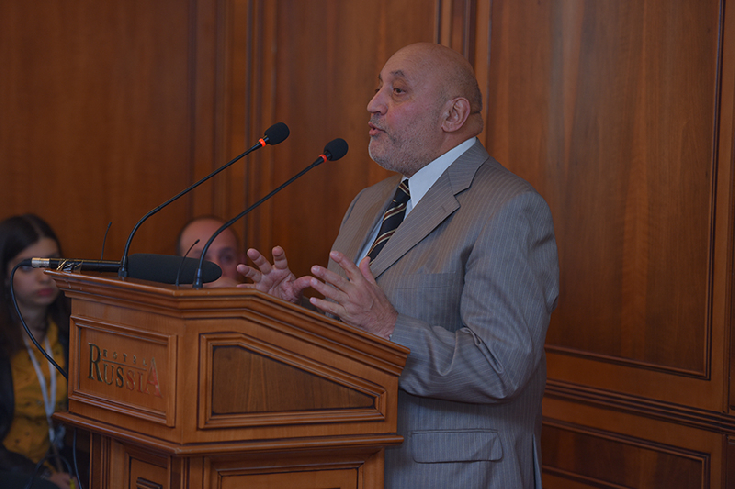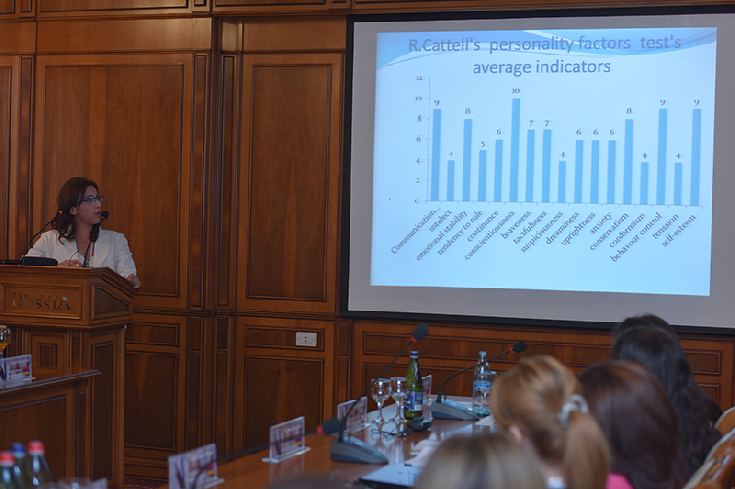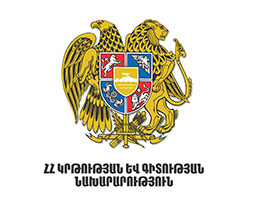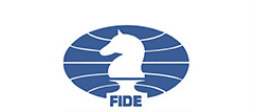
 ChessAcademy.am
ChessAcademy.am
The Impact of Chess on Children’s Mental Development According to Psychologists Ruben Aghuzumtsyan and Sona Poghosyan

For many years, the psychological aspect of chess has been central to the research of Ruben Aghuzumtsyan, Professor and head of the Psychology department of the Academy of Public Administration of Armenia. His research on this subject has looked into the ways chess can alleviate personal stress, how different ages approach learning chess for the first time, and has also attempted to identify the mental traits that are most vital for playing chess at the highest level. But now Prof. Aghuzumtsyan looks towards education, and he is leading a group of psychologists in the task of establishing a scientific approach behind our Chess in Schools program in Armenia. Aghuzumtsyan notes that it was obvious from the very beginning of the CIS program that chess would be included in the school curriculum not to prepare future professional players, but to promote the mental development of students. Studies have already shown that in addition to strengthening cognitive abilities, chess has the capacity to improve mental wellbeing, namely in promoting the formation of stable interpersonal relationships between pupils.
Chess is taught from the second grade in Armenia, and Prof. Aghuzumtsyan believes this is the perfect age to start at. According to him, junior schoolchildren should be only be involved in three types of activities: games, classwork and physical activity. It is well established that the teaching of any subject at this level tends to be more fruitful if presented as a game, and it is not difficult to see the natural position chess at this level in the curriculum. Chess is also a unique game - while it develops pupils’ cognitive functions in general, in particular it targets the development of logical capabilities as well. It is for these reasons that chess enjoys such widespread popularity among children in Armenia, and it is likely that that other subjects would receive similar levels of interest from students if they were also organized through the medium of games.
Qualified teachers are responsible for carrying out the chess educational process, and the success and effectiveness of the program mostly depends on their professional skills. As a result, Chess in Schools has always paid great attention to the training program for chess teachers. The launch of the program revealed that more than 1,200 schools in Armenia had to be provided with tutors, and, naturally, there was difficulty in acquiring enough qualified chess experts. Most of the experts that were approached did not possess any pedagogical experience, and there was a vital need to cultivate such psychological and pedagogical skills within the experts. To achieve this, a training manual was published which guided the professionals in the preparation for their certification exams. In addition, a group of psychologists led by Prof. Aghuzumstyan visited the schools and gave practical on-site advice based on their observations of the classes. The effectiveness of this training program exceeded our expectations and a consistent pattern of increasing psychological and pedagogical proficiency emerged among the chess experts involved.
Cultivating these pedagogical skills among experts of chess is integral to the success of the program, but, in Prof. Aghuzumtsyan’s opinion, the most important characteristic of a successful teacher is an innate care and dedication to children. Without genuine care, teachers are prone to making serious mistakes during communication, and the transferal of knowledge is put at risk. This humanism, the professor states, is the most important factor in teaching, and while it is possible for an established teacher to adopt new techniques to improve the learning process, it is less easy for someone outside of the teaching profession to obtain the skills necessary to take the utmost care of their pupils. With this in mind, Prof. Aghuzumtsyan welcomes an initiative launched by the Armenian State Pedagogical University (ASPU), which now prepares chess teachers through a rigorous four-year Bachelor’s degree program.
As another facet in the promotion of chess in education, Prof. Aghuzumtsyan also finds it important to track the changing attitudes of parents towards chess in school environments. He stresses the importance in ensuring that parents understand that chess is taught in schools not to prepare children to become future players, but to promote a comprehensive development of their cognitive abilities. Another challenge in promoting the use of chess as an educational tool lies in the quality of work done with the children. Aghuzumtsyan places particular significance on making sure that any competition between the pupils must be firmly grounded in the principles of fair play. In turn, he notes, competition conducted fairly allows for a more reliable evaluation process.
 As a result, a deeper inspection of the program was needed to ensure that these standards were being met on-site. When Chess in Schools was first launched, a group of psychologists was formed under the leadership of Sona Poghosyan - lecturer at the Academy of Public Administration of Armenia – who carried out class observations within participating schools across the country. One of their observations involved comparing the progress of two different types of teachers: those who specialized as educators first, and those who joined the program as chess experts. The psychologists also turned their eye towards identifying and determining the key assets required in the ideal chess schoolteacher through a survey involving 300 chess teachers from across 5 different provinces in Armenia. The findings consistently pointed to sensitivity on the part of the teachers’ to be one of these essential traits; a teacher sensitive to the feelings and emotions of their pupils creates a much freer and calmer atmosphere for their students.
As a result, a deeper inspection of the program was needed to ensure that these standards were being met on-site. When Chess in Schools was first launched, a group of psychologists was formed under the leadership of Sona Poghosyan - lecturer at the Academy of Public Administration of Armenia – who carried out class observations within participating schools across the country. One of their observations involved comparing the progress of two different types of teachers: those who specialized as educators first, and those who joined the program as chess experts. The psychologists also turned their eye towards identifying and determining the key assets required in the ideal chess schoolteacher through a survey involving 300 chess teachers from across 5 different provinces in Armenia. The findings consistently pointed to sensitivity on the part of the teachers’ to be one of these essential traits; a teacher sensitive to the feelings and emotions of their pupils creates a much freer and calmer atmosphere for their students.
Parallel to the monitoring of teachers, the progress of pupils (including those who did not learn chess in their classes) was also examined during the four-year process starting in 2011 and ending in 2014. Poghosyan presented the findings of the study in a 2016 conference in Tsaghkadzor, and the results were extremely encouraging: students who got higher marks in chess, on average received higher marks in other subjects as well. These findings fall in line with a substantial body of research proving that, on top of contributing to cognitive and creative development, chess has an additional impact on children’s concentration, volition, and memory. Naturally, these are traits that are essential for any school pupil.
Looking to the future, many questions remain to be raised - and answered - in the field of chess education. Prof. Aghuzumtsyan and Sona Poghosyan stress that while the current lines of research must maintain their momentum, there is also potential in bringing medical and neurological approaches into the fold. Nonetheless, the introduction of chess into the school curriculum has allowed for the generation of a considerable amount of psychological, sociological and pedagogical research. They are the first of their kind in the world, and their innovative approaches and intriguing findings have drew great interest among partners abroad.
By Tatev Khachatryan




